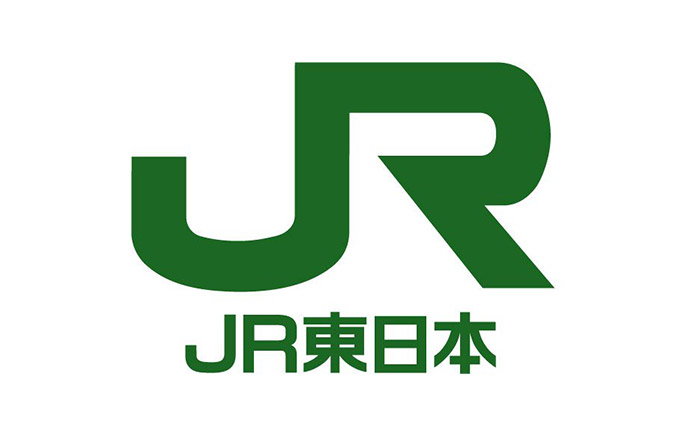Exploring The World Of Jr Police Programs
Have you ever wondered about programs that help young people learn about law enforcement and community safety? It's a fascinating area, you know, where kids and teenagers get a chance to see what police work is really like. These programs, often called "jr police" or "junior police" initiatives, offer a special peek behind the scenes, giving participants a real sense of responsibility and purpose. They're pretty much about building good citizens and, in a way, future leaders.
For many young people, the idea of police work might seem a bit distant or, perhaps, only seen on television. But junior police programs actually bring that world much closer, offering hands-on experiences and direct interaction with officers. It's not just about wearing a uniform; it's about understanding rules, helping others, and seeing how community safety truly works. These programs, honestly, are a wonderful opportunity for personal growth and learning some very important life lessons, too.
So, if you're a parent looking for something meaningful for your child, or maybe a young person curious about serving your community, then understanding what "jr police" programs are all about could be really helpful. We'll explore what these initiatives involve, who they're for, and the many good things they bring to both the participants and the neighborhoods they live in. It's a topic that, you know, touches on community spirit and youth development quite a bit.
Table of Contents
- What Are Jr Police Programs?
- The Benefits of Joining a Jr Police Program
- Typical Activities and Training
- How to Find a Jr Police Program Near You
- Common Questions About Jr Police Programs
- Conclusion: Joining the Ranks of Jr Police
What Are Jr Police Programs?
When people talk about "jr police," they're usually referring to youth programs run by local law enforcement agencies. These programs are designed to give young people, often in their pre-teen or teenage years, a structured environment where they can learn about police work, civic responsibility, and leadership. It's not about making them actual police officers, but rather about teaching them important life lessons and, you know, fostering a positive relationship between youth and the police.
A Brief History and Purpose
These kinds of programs have been around for quite a while, actually, in various forms. They often started as ways to engage young people in positive activities, keeping them busy and, at the same time, teaching them about respect for the law. The main goal, you see, is to build a bridge between the police force and the younger generation. It's about showing that police officers are there to help and protect, and that young people can also play a part in keeping their communities safe and orderly. So, it's pretty much a two-way street of learning and connection.
Who Can Join?
Eligibility for junior police programs tends to vary a bit depending on the specific department running it. Typically, they're open to young people within a certain age range, say, from 10 to 18 years old. Some programs might have academic requirements or ask for a clean record, just to make sure participants are ready for the responsibility. It's usually about finding young individuals who are curious, willing to learn, and interested in contributing positively to their surroundings. You'll often find that these programs are quite welcoming to a wide variety of young people, which is great.
The Benefits of Joining a Jr Police Program
Participating in a "jr police" program offers a lot of good things for young people. It's more than just an after-school activity; it's an experience that can shape their future in many ways. From learning new skills to understanding their community better, the advantages are, arguably, quite significant.
Building Character and Skills
One of the biggest upsides is how these programs help young people grow as individuals. They learn about discipline, respect, and responsibility, which are, you know, pretty valuable traits for anyone. Participants often get better at teamwork, problem-solving, and communication. These are all skills that will serve them well, no matter what path they choose later in life. It's about developing a strong sense of self and, perhaps, a bit of leadership potential, too.
Community Connection
Junior police programs really help young people feel more connected to their local area. They get to meet police officers, learn about local laws, and sometimes even help with community events. This kind of interaction helps break down barriers and builds trust between young people and law enforcement. It's about understanding that everyone has a role to play in making a community safe and, you know, a nice place to live. This connection can lead to a stronger sense of belonging and civic pride, which is very important.
Career Exploration
For some young participants, these programs might spark an interest in a career in law enforcement or public service. They get a firsthand look at what police officers do, the challenges they face, and the rewards of serving others. It's a chance to see if this kind of work truly fits their personality and interests, without having to make a big commitment. This early exposure can be incredibly valuable for helping them figure out their future path, you know, giving them a bit of direction.
Typical Activities and Training
What do young people actually do in a "jr police" program? The activities are usually varied and designed to be both educational and engaging. They combine classroom learning with practical exercises, giving participants a well-rounded experience. It's, honestly, a pretty dynamic mix.
Learning About Law Enforcement
Participants often learn about different aspects of police work, like how laws are made, what different types of crimes exist, and how investigations happen. They might hear from guest speakers, including police officers, detectives, and even K9 handlers. Sometimes, they get to visit police stations, see patrol cars up close, and understand the equipment officers use. This kind of direct exposure is, you know, really eye-opening for many of them.
Physical Activities and Teamwork
Many programs include physical training components, like drills, obstacle courses, or team-building exercises. These activities help improve fitness, promote a healthy lifestyle, and, perhaps most importantly, teach the value of working together. It's not about being a super athlete, but about encouraging effort and cooperation. These shared physical challenges often build strong bonds among the participants, which is, you know, pretty neat to see.
Community Service Projects
A big part of being a "jr police" participant is giving back to the community. Programs often involve participants in various service projects, like neighborhood clean-ups, helping at local events, or assisting with crime prevention initiatives. This hands-on involvement helps young people understand their role in making their community a better place and, you know, fosters a sense of civic duty. It's about putting what they learn into practice for the good of everyone.
How to Find a Jr Police Program Near You
If you're interested in finding a "jr police" program, the best place to start is usually your local police department or sheriff's office. Many agencies have dedicated youth programs, often listed on their official websites. You might also find information by contacting your local community center, school counselors, or even youth organizations like the Boys & Girls Clubs. Sometimes, these programs are seasonal, like summer camps, or they might run year-round, so it's good to check for specific dates and sign-up periods. Remember, you can always learn more about community engagement on our site, and link to this page youth development initiatives, too.
Another good tip is to look for information online. A quick search for "junior police academy [your city/county]" or "youth police programs [your state]" can often bring up relevant results. Local news outlets sometimes cover these programs when they're open for applications, so keeping an eye on community announcements can be helpful. It's all about reaching out and, you know, asking around a bit to find the right fit.
When you find a potential program, it's always a good idea to reach out directly to the organizers. Ask them about the program's structure, what activities are involved, the time commitment, and any requirements for joining. This way, you can make sure it's a good match for the young person interested. You know, getting all the details beforehand is always a smart move.
Common Questions About Jr Police Programs
People often have a few questions about "jr police" programs, so let's try to answer some of the common ones, shall we? These are the kinds of things that often pop up when folks are looking into these opportunities.
What is the typical age range for participants?
Most "jr police" programs are designed for young people between the ages of 10 and 18, but this can vary a bit. Some might focus more on younger kids, while others are geared towards older teenagers who might be thinking about a career in law enforcement. It's always best to check with the specific program you're interested in, as, you know, age requirements are pretty standard.
Do participants wear uniforms?
Yes, many junior police programs do provide some form of uniform or specific attire for their participants. This could be a t-shirt, a polo shirt, or even a more formal cadet-style uniform, depending on the program's structure. Wearing a uniform helps create a sense of unity and pride among the participants, and, honestly, it helps identify them as part of the program, too. It's usually a pretty neat part of the experience.
Are these programs only for kids who want to be police officers?
Not at all! While some participants might develop an interest in law enforcement, the main goal of "jr police" programs is much broader. They aim to teach important life skills like discipline, teamwork, leadership, and community responsibility. These are valuable lessons for any young person, no matter what career path they choose later. So, it's really about personal development and, you know, becoming a good citizen, which is something everyone can benefit from.
Conclusion: Joining the Ranks of Jr Police
Getting involved with a "jr police" program can be a really enriching experience for young people. It offers a unique chance to learn about law enforcement, build strong character, and connect with the community in a meaningful way. These programs help young individuals develop valuable skills, understand civic duties, and perhaps even discover a passion for public service. It's a way to grow, learn, and contribute, all at the same time.
If you or a young person you know is curious about the world of law enforcement, or simply looking for a structured and positive activity, exploring "jr police" options is, arguably, a great idea. It's about opening doors to new knowledge and, you know, building a foundation for a responsible future. Take the time to look into what your local police department offers; it could be the start of something truly special. You can find more general information about youth programs at Youth.gov, which is a good place to start your search, too.
JR東日本アプリ | 乗換案内・時刻表・運行情報・列車位置 - Apps on Google Play

JR東、福島沖地震の東北新幹線被災概要・運転計画を発表 | NEXT MOBILITY | ネクストモビリティ

Jr.com